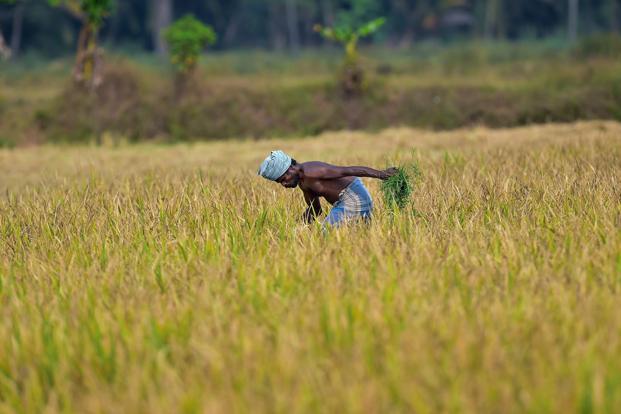
Karnataka farmers in distress over shutdown impact on supply-chain

On Monday (March 30), a debt-ridden farmer in North Karnataka allegedly committed suicide after his financial woes worsened following the lockdown imposed in the wake of the coronavirus outbreak.
Chandrakant Biradar, a farmer from Aland Taluk in Kalaburgi district who cultivated watermelon in three acres, could not transport his produce to the market.
Worried over the financial loss, the farmer allegedly committed suicide. The police registered a case of unnatural death in Kalaburgi police station limits.
Bidarar’s death comes as an example of distressed farmer cases in the wake of lockdown imposed due to coronavirus pandemic in the state.
With police brutality added to supply chain disruption, the farmers across the state are worried over issues of either not getting labour to harvest crops or not being able to transport their produce to the market or even not being able to find cold-storage facility to save the crops.
Farmer leader Maruthi Manpade requested the government to give ₹25 lakh compensation to Bidar’s family and ensure that farm loans are waived-off so that his immediate family members are not troubled by the debt.
Several farmers across Kolar, Tumakuru and Chitradurga who grew tomato crops dumped their produce on road with non-availability of transportation facility.
In Pandavapura taluk, a farmer who grew tomatoes in one acre of land could not find wholesale buyers on Sunday (March 29). Unable to retain the stock and let is rot, the farmer dumped the produce in a nearby lake. The prices of tomatoes had come down to less than ₹5 at various vegetable wholesale markets.
With farmers unable to find ways to sell their produce, in Chamarajanagar village, a farmer distributed tomatoes to villagers for free as they could not afford the vegetable with skyrocketing prices in the wake of shutdown.
A farmer in Chikkodi in north Karnataka let 1,500 litres of milk into a river canal as he wasn’t able to transport it to the nearby milk dairy. Videos of farmers dumping musk melons, grapes, and even milk are doing rounds on social media platforms.
In the first two weeks of March a fake message saying the coronavirus was spreading through chickens sent shock waves across the poultry industry. The meat farmers were distressed as the prices crashed following the demand crunch.
With no takers farmers in Kolar and Mysore area dumped their chicken. The price of chicken dropped to ₹60 per kg from ₹200 per kg.
Kurubur Shantakumar, the farmer leader from the state blamed the government for mismanagement and said the problem will not be solved just by easing transportation for farm products, but also by building public confidence to go out and purchase. “If there are no buyers, what is point of allowing them to transport the produce which increase the losses,” he asks.
He highlighted that many small and big hotels are the primary consumers and hence shutting down of these outlets caused immense stress to farmers in the periphery of cities.
Following this, Karnataka Chief Minister BS Yediyurappa held an emergency meeting earlier this week with agriculture department officials and took a slew of measures to reduce the farm distress.
The chief minister said that the export varieties of food crops like tomatoes and musk melons would now be procured by the state-owned Horticultural Producers’ Cooperative Marketing and Processing Society (HOPCOMS) and in turn sell them to customers through their retail outlet.
He further debunked rumours of coronavirus spreading through eggs and chickens and assured farmers that even those products will be made available in HOPCOMS.
He appealed to the citizens and requested them not to hoard and also not heed to the rumours about the shortage of food grains and products.
The government has also decided to permit rice and dal mills to function and also purchase unsold milk and distribute it to the poor. “We will distribute it to the poor people free of cost till April 14,” the chief minister said.


